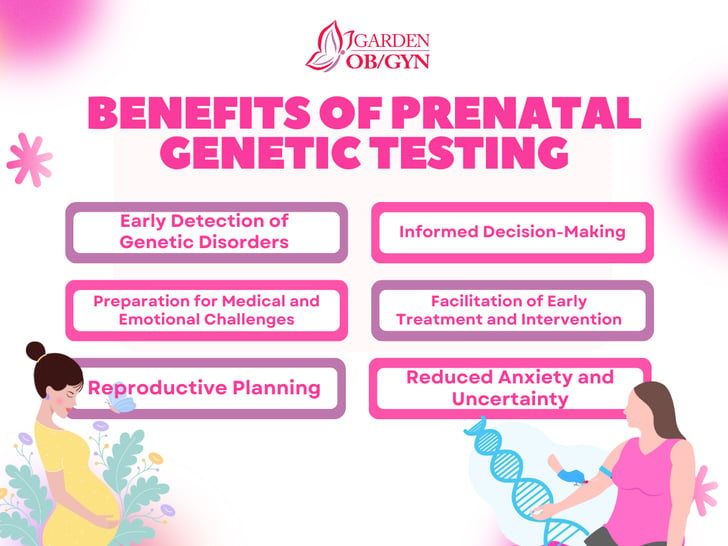Benefits of Prenatal Genetic Testing
Let us delve into the myriad benefits of prenatal genetic testing, highlighting how this innovative approach is reshaping the way we approach pregnancy and childbirth.

The landscape of prenatal care has undergone a remarkable transformation with the advent of prenatal genetic testing. This cutting-edge technology offers a window into the genetic makeup of the developing fetus, providing expectant parents and healthcare professionals with invaluable information. In this article, we delve into the myriad benefits of prenatal genetic testing, highlighting how this innovative approach is reshaping the way we approach pregnancy and childbirth.
- Early Detection of Genetic Disorders:
One of the primary advantages of prenatal genetic testing is the ability to detect genetic disorders in the early stages of pregnancy. Through various screening and diagnostic tests, healthcare providers can identify conditions such as Down syndrome, cystic fibrosis, and neural tube defects. Early detection enables timely intervention and management, allowing parents to make informed decisions about their pregnancy and the well-being of their child.
- Informed Decision-Making:
Prenatal genetic testing empowers expectant parents with crucial information, enabling them to make informed decisions about the course of their pregnancy. Armed with knowledge about potential genetic conditions, parents can work closely with healthcare professionals to develop personalized care plans that address the unique needs of their child. This informed decision-making process ensures that parents are actively involved in shaping the trajectory of their child's health.
- Preparation for Medical and Emotional Challenges:
Knowing in advance about potential genetic conditions allows parents to prepare for the medical and emotional challenges that may lie ahead. This preparation involves not only gaining a deeper understanding of the specific condition but also establishing a support network that includes healthcare professionals, support groups, and family members. Emotional preparedness can significantly impact the overall well-being of both parents and the child.
- Facilitation of Early Treatment and Intervention:
Prenatal genetic testing enables healthcare providers to initiate early treatment and intervention strategies when necessary. Early detection of certain conditions allows for prompt medical attention, therapeutic interventions, and specialized care plans. This proactive approach can enhance the effectiveness of treatment and improve outcomes for children with genetic disorders.
- Reproductive Planning:
For couples with a family history of genetic conditions, prenatal genetic testing plays a pivotal role in reproductive planning. Understanding the genetic risks associated with a pregnancy allows couples to make informed decisions about family planning, including the consideration of assisted reproductive technologies or adoption.
- Reduced Anxiety and Uncertainty:
Prenatal genetic testing can alleviate anxiety and uncertainty by providing clarity about the genetic health of the fetus. While the process may initially introduce concerns, receiving clear and accurate information allows parents to navigate their pregnancy with greater confidence, fostering a more positive and emotionally stable experience.
Prenatal genetic testing represents a revolutionary advancement in healthcare, offering a range of benefits that extend beyond the realm of diagnostics. From empowering parents with knowledge to facilitating early intervention, this technology is reshaping the landscape of prenatal care. As our understanding of genetics continues to evolve, the profound benefits of prenatal genetic testing are poised to play an increasingly pivotal role in ensuring the health and well-being of future generations.
































